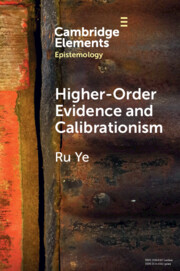Evidentialism as an account of theoretical rationality is a popular and well-defended position. However, recently, it's been argued that misleading higher-order evidence (HOE) – that is, evidence about one's evidence or about one's cognitive functioning – poses a problem for evidentialism. Roughly, the problem is that, in certain cases of misleading HOE, it appears evidentialism entails that it is rational to adopt a belief in an akratic conjunction – a proposition of the form “p, but my evidence doesn't support p” – despite it being the case that believing an akratic conjunction appears to be clearly irrational. In this paper, I diffuse the problem for evidentialism using the distinction between propositional and doxastic rationality. I argue that, although it can be propositionally rational to believe an akratic conjunction (according to evidentialism), one cannot inferentially base an akratic belief in one's evidence, and, thus, one cannot doxastically rationally possess an akratic belief. In addition, I address the worry that my solution to the puzzle commits evidentialists to the possibility of epistemic circumstances in which a proposition, p, is propositionally rational to believe (namely, an akratic conjunction), yet one cannot, in principle, (doxastically) rationally believe p. As I demonstrate, cases of misleading HOE are not the only types of cases that force evidentialists to accept that propositional rationality does not entail the possibility of doxastic rationality. There are no new problems raised by misleading HOE that weren't already present in cases involving purely first-order evidence.


